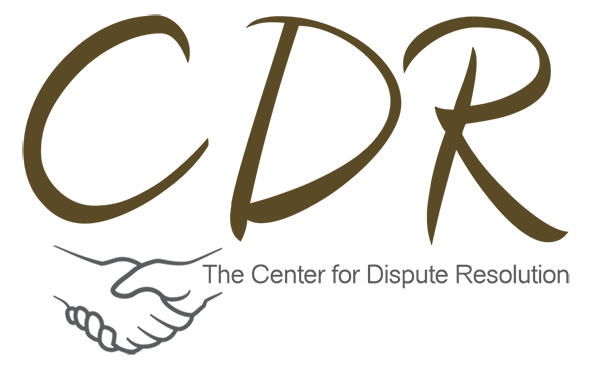
Conflict Coaching: Resolving Differences and Finding Common Ground
Welcome to our comprehensive guide on conflict coaching, where we aim to equip you with the necessary tools and strategies to effectively manage conflicts and ultimately find resolutions that satisfy all parties involved. At The Center for Dispute Resolution, we understand the challenges that conflicts can bring, and we are here to support you in navigating through them. In this article, we will delve into the intricacies of conflict coaching, its benefits, and how it can help you overcome obstacles and build stronger relationships. Let’s get started!
Understanding Conflict Coaching
Conflict coaching is a specialized form of coaching that focuses on helping individuals or groups manage and resolve conflicts constructively. It provides a structured and supportive environment where conflicts can be explored, analyzed, and ultimately transformed into opportunities for growth and collaboration. By working with a conflict coach, individuals can gain valuable insights, develop effective communication skills, and learn strategies to navigate complex situations.
The Benefits of Conflict Coaching
Conflict coaching offers numerous benefits for individuals, teams, and organizations. By investing in conflict coaching, you can:
1. Improve Communication Skills
Effective communication lies at the heart of conflict resolution. Conflict coaching helps individuals enhance their communication skills by fostering active listening, empathy, and assertiveness. These skills empower participants to express their needs and concerns clearly while also promoting understanding and empathy towards others.
2. Enhance Self-Awareness
Conflicts often trigger strong emotions, and it can be challenging to maintain self-control in such situations. Conflict coaching facilitates self-awareness by helping individuals recognize their emotional triggers, biases, and assumptions. By gaining insight into their own reactions, individuals can develop greater emotional intelligence and make more informed decisions during conflicts.
3. Develop Problem-Solving Strategies
Conflict coaching equips individuals with practical problem-solving strategies tailored to their unique circumstances. It encourages participants to explore creative alternatives, consider different perspectives, and find win-win solutions that address the underlying needs and interests of all parties involved. By developing these skills, individuals can navigate conflicts more effectively and foster collaborative outcomes.
4. Strengthen Relationships
Unresolved conflicts can strain relationships and hinder productivity. Through conflict coaching, individuals can repair damaged relationships and build stronger connections based on trust, respect, and open communication. By addressing conflicts proactively, you can create an environment that encourages teamwork, cooperation, and a positive organizational culture.
The Conflict Coaching Process
Conflict coaching typically follows a structured process that guides individuals towards resolution. While each coaching engagement is unique, the following steps provide a general overview of the conflict coaching process:
1. Initial Assessment and Goal Setting
The first step in conflict coaching involves an initial assessment, where the conflict coach gathers information about the conflict, its underlying causes, and the parties involved. The coach works closely with the individuals to identify their goals and desired outcomes for the coaching process.
2. Exploration and Analysis
During this stage, the coach helps individuals explore the conflict in detail, examining the various perspectives, needs, and interests of each party. Through active listening and powerful questioning, the coach facilitates a deeper understanding of the conflict dynamics, contributing factors, and potential areas for resolution.
3. Skill Building and Strategy Development
In this phase, the conflict coach provides individuals with tools, techniques, and strategies to manage conflicts effectively. This may include communication skills training, emotional intelligence development, negotiation techniques, and problem-solving frameworks. The coach supports the individuals in practicing and applying these skills within a safe coaching environment.
4. Action Planning and Implementation
With a solid foundation of skills and strategies, the individuals, guided by the conflict coach, develop an action plan to address the conflict. The plan may involve specific steps, timelines, and agreed-upon communication channels to ensure progress towards resolution.
Conclusion
In conclusion, conflict coaching is a valuable resource for individuals, teams, and organizations seeking to effectively manage conflicts and foster positive outcomes. By engaging in conflict coaching, individuals can enhance their communication skills, develop self-awareness, and acquire problem-solving strategies that promote collaboration and resolution.
Through the structured process of conflict coaching, individuals are guided towards understanding the root causes of conflicts, exploring various perspectives, and identifying common ground. With the support of a skilled conflict coach, individuals can navigate through challenging situations, build stronger relationships, and create a more harmonious work or personal environment.
It is important to recognize that conflicts are a natural part of human interactions and can arise in any setting. Rather than avoiding or suppressing conflicts, conflict coaching encourages individuals to embrace conflicts as opportunities for growth and learning. By equipping individuals with the necessary skills and strategies, conflict coaching empowers them to transform conflicts into productive and constructive conversations.
At The Center for Dispute Resolution, we understand the significance of effective conflict management, and we are committed to helping individuals and organizations thrive amidst challenges. Our team of experienced conflict coaches is dedicated to providing personalized guidance and support tailored to your unique circumstances.
Investing in conflict coaching can have long-lasting positive effects, leading to improved communication, strengthened relationships, and increased productivity. Whether you are facing conflicts in the workplace, within your family, or in any other area of your life, conflict coaching can be a powerful tool for resolution and personal growth.
If you are ready to embrace conflicts as opportunities for positive change and growth, we invite you to reach out to us at 478 216-8522. Let us help you navigate through conflicts, transform challenges into opportunities, and create a more harmonious and fulfilling life.
Remember, conflict coaching is not about avoiding conflicts, but rather about transforming them into catalysts for personal and professional development. Embrace the power of conflict coaching and embark on a journey towards resolution, growth, and stronger relationships.
✅ Resolve disputes effortlessly. ✅ Build stronger relationships. ✅ Subscribe FREE now!
Don't miss out! Join us today. 🚀


Comments are closed